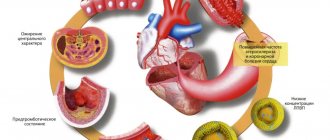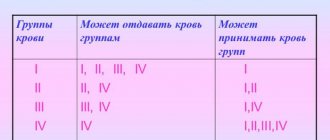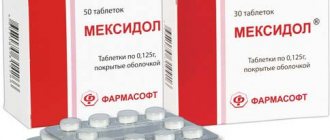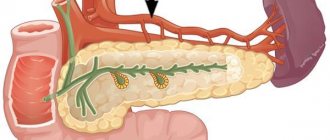Hypertension is characterized by increased blood pressure. Many people over 45 years of age suffer from it. The problem especially often concerns patients who do not follow a healthy lifestyle and have pathologies of the cardiovascular system. It is impossible to completely recover from the disease; it only progresses over time. Drug therapy is used to alleviate the condition. It includes various tablets for hypertension based on natural and artificially synthesized components. They can be used only after the approval of the attending physician in order to avoid adverse reactions.
The danger of hypertension
Unfortunately, when we run away from problems, they do not disappear, but only grow like a snowball. If arterial hypertension is not treated, disturbances in the activity of the most important organs and systems develop very quickly: the functioning of the heart and kidneys suffers, and vascular atherosclerosis rapidly progresses. Moreover, most of the changes that occur in the body are irreversible: even after blood pressure has been reduced, they all remain, having a significant impact on both the quality and life expectancy. Every hypertensive person should know that high blood pressure is one of the main causes of cardiovascular accidents - heart attack and stroke. That is why delay in treating hypertension is simply unacceptable!
What is arterial hypertension? This is a chronic disease that requires constant therapy.
If arterial hypertension occurs, do not deceive yourself: it will not “resolve” by itself. When the tonometer regularly shows 140 over 90 or higher, the only right decision is to see a doctor - a cardiologist or therapist, and the sooner you do this, the better.
Principles of proper therapy
To achieve a high positive result in the treatment of hypertension, you should adhere to several undeniable rules:
- do not stop taking medications when a positive result is achieved. Hypertension is a disease that requires lifelong medication;
- the patient must strictly follow the doctor’s recommendations in the medication regimen;
- if the effect of the drug weakens, consult your doctor; only a highly qualified specialist can replace one drug with another and decide to change the course of therapeutic treatment;
- Hypertension is a chronic disease, so it is unacceptable to interrupt treatment.
In the complex treatment of hypertension, it is important not only to reduce the pressure, but to consolidate the result, thereby reducing the risk of complications and hypertensive crises. The patient needs to join forces with the attending physician, act harmoniously and competently. Only in this case is it possible to achieve a positive result.
At any stage of the disease, the patient needs:
- follow a certain diet, reduce salt intake and increase intake of foods containing potassium and magnesium;
- limit the intake of alcoholic beverages;
- normalize your weight;
- take prescribed medications;
- systematically monitor blood pressure levels.
Causes of arterial hypertension
Increased pressure can occur for various reasons. Hypertension can be caused by diseases of the kidneys and renal vessels, it can be a consequence of endocrine disorders and some other diseases. But in more than 80-90%, arterial hypertension occurs as an independent disease. In this case, the patient is diagnosed with hypertension.
Many people have a hereditary predisposition to hypertension. But this does not mean that every person with unfavorable heredity will get sick. At risk for hypertension are people who constantly experience severe emotional stress, patients who are overweight, and the more it is, the higher the pressure numbers can be expected.
Smoking and alcohol abusers have a very high chance of developing hypertension, and at a fairly young age. Other risk factors include eating a lot of salt and lack of physical activity (sedentary lifestyle). High levels of cholesterol and blood sugar also lead to the early development and rapid progression of arterial hypertension. Interestingly, hypertension is more common among middle-aged men.
Few people know about such a serious and common cause of hypertension as obstructive sleep apnea syndrome (OSAS) - a complication of snoring. This disease overtakes a person while he is sound asleep: his airways periodically collapse, and breathing temporarily stops several times during the night. Such forced breathing pauses can last quite a long time: from 10 seconds to 2 or even 3 minutes, and are repeated dozens and even hundreds of times per night!
When breathing stops, the adrenal glands release stress hormones into the blood, which leads to a micro-awakening of the brain. Breathing is restored, and the person, without fully waking up, falls back into sleep. The next morning, the person suffering from OSA does not remember what happened to him at night. But the seriousness of the problem is that throughout the night and for some time after waking up, people with OSA maintain a high level of stress hormones in the blood, due to which the blood vessels remain in a spasmodic state. Thus, at night and in the morning, when people’s blood pressure normally decreases, in hypertensive patients suffering from OSA, it increases even more! The worst thing about this situation is that even prescribing several medications for high blood pressure in patients with OSA often does not give the desired effect.
Video on the topic
Review of the most popular antihypertensive drugs:
Hypertension is one of those diseases that cannot be cured only with folk remedies; a professional medical approach is very important here. Self-medicating in this case is simply unreasonable. A modern approach to the treatment of high blood pressure makes it possible to reduce risks and normalize human vital functions.
The information on the MyMedNews.ru website is for reference and general information, collected from publicly available sources and cannot serve as a basis for making a decision on the use of medications in the course of treatment.
MyMedNews.ru
And we also have
Antihypertensive tablets Nebilet: instructions for use, price, reviews from cardiologists, analogues
Arterial hypertension and its symptoms
When blood pressure rises, most people do not experience significant discomfort. Many people can continue to work and carry out their daily duties even if their blood pressure numbers are very high.
A sharp deterioration in well-being occurs at those moments when the pressure rises much higher than the level familiar to a person. At this moment, a hypertensive crisis develops: the head and heart begin to ache, dizziness appears, palpitations, nausea and even vomiting may occur.
Fast-acting drugs for hypertension
People suffering from hypertension may experience a sudden rise in blood pressure, and in this situation it is very important to provide emergency help.
Nifedipine tablets
To prevent a hypertensive crisis, it is necessary to put under the tongue and dissolve a medicine that quickly reduces blood pressure, such drugs include Nifedipine, Capoten, etc. In this case, the patient needs to be seated, brought to a calm state, a hot compress or a foot bath is possible. After taking the medicine, call an ambulance immediately.
How to treat arterial hypertension
The treatment for arterial hypertension largely depends on the cause of the increase in blood pressure. In ordinary cases, with essential hypertension (that is, if it appears as an independent disease), to prescribe it, you should contact the already mentioned specialists - a therapist or a cardiologist.
If a hypertensive patient snores in his sleep, he is at risk for developing OSA. In order to exclude this diagnosis or confirm it and begin proper treatment as early as possible, you need to consult a specialist in sleep disorders - a somnologist. Even if a person already has severe OSA, when breathing stops occur 30-60 times per hour of sleep, a somnologist will be able to select a treatment that will completely prevent the development of breathing stops during sleep. For many patients, solving the problem of OSA will be one of the components of the treatment of arterial hypertension: after respiratory arrests stop, the production of stress hormones will decrease, vascular spasm will subside, and the pressure will drop.
Do you think your hypertension is related to sleep disorders? Contact the Sleep Medicine Center at the Rehabilitation Clinic in Khamovniki. We will definitely help you! Ask questions and sign up for a consultation by phone: +7.
When the cause of hypertension lies in kidney disease (this also happens), treatment should be carried out together with a nephrologist or urologist. If a therapist or cardiologist suspects an endocrine pathology in a patient with arterial hypertension, a series of examinations will be required, and if the diagnosis is confirmed, treatment by an endocrinologist.
If there is narrowing of the renal vessels (stenosis), treatment will be surgical: the doctor may install stents in the changed vessels of the kidneys to widen them. After the operation, the pressure will decrease.
In short, different specialists can be involved in the treatment of hypertension. But whatever the cause of the disease, high blood pressure almost always, among other things, requires the use of medications.
Characteristics of the disease
With hypertension, there is a persistent violation of the upper limits of permissible pressure (above 140/90).
It is worth noting that it is a systematic, and not a one-time increase in pressure, that gives the patient a reason to be diagnosed with arterial hypertension and prescribed a group of blood pressure medications.
The diagnosis is not made on the basis of a one-time measurement with a tonometer; for this it is necessary to monitor the patient’s pressure and measure it systematically. The reason for high blood pressure can be any unusual situation that forces the body to react in a similar way.
If the disease is nevertheless diagnosed, the patient will have to take medications throughout his life in order to maintain normal functioning. These drugs are designed to reduce blood pressure to an acceptable level and alleviate symptoms of the disease such as headaches, dizziness, bleeding from the nose, etc.
Do not forget that hypertension is fundamental for the development of strokes and heart attacks; by taking a group of drugs for the treatment of hypertension, the patient reduces the risk of developing such complications.
Practice shows that strokes and heart attacks often lead to death.
Precursors to a hypertensive crisis can often be emotional changes, physical strain, stress, and meteorological changes. During a hypertensive crisis, the patient is frightened, overexcited or inhibited behavior, drowsiness, and loss of consciousness are observed.
With a prolonged course of the disease, the development of chronic damage to the systems of the human body is possible. Against the background of a steady increase in blood pressure, blood circulation is disrupted and, as a result, there is a risk of developing diseases of the cardiovascular system, kidneys and liver, visual impairment, etc.
Drugs for the treatment of arterial hypertension
Many years ago, it was believed that mildly high blood pressure could be left untreated as long as the person remained well. Large-scale medical research conducted in recent decades has proven that this opinion was erroneous. Any blood pressure exceeding 140/90 mmHg requires therapy.
In order to reduce blood pressure and maintain it at a constant normal level, it is very important to constantly follow the doctor’s recommendations and take medications that lower blood pressure, and this must be done constantly and strictly in accordance with the treatment regimen.
What medications treat arterial hypertension? There are a lot of them. All medications for hypertension are divided into groups according to their chemical structure and mechanism of action.
Diuretics
At the first stage, especially if the pressure is not very high, and hypertension has not yet led to disruption of the functioning of internal organs (heart, kidneys), the doctor will prescribe diuretics. Many may be surprised: hypertension – and diuretics? What connection? The fact is that one of the reasons for increased pressure is an increase in the volume of circulating blood. We constantly add salt to our food, some people generally like everything salty, and salt, as you know, retains water in the body. So it turns out that diuretics, which remove excess sodium and potassium, and then water from the body, reduce blood pressure well. There is another wonderful effect of diuretics: they enhance the effect of other medications for hypertension.
But in addition to diuretics, there are at least 4 groups of drugs that are used to lower blood pressure. The main representatives of these groups are well known and may be well known to you.
ACEI
Medicines from the ACEI group (stands for “angiotensin-converting enzyme inhibitors”) effectively reduce blood pressure, protect internal organs, primarily the heart and kidneys, from the negative effects of high blood pressure, and slow down the development of coronary heart disease and heart failure. These drugs are prescribed very often. Most pharmacological names of ACE inhibitors have the ending “adj”: Enalapril (aka Enap, Enam), Perindopril (aka Prestarium), Ramipril, Captopril. Unfortunately, ACE inhibitors can cause a dry cough, which may make them unusable in some people.
Sartans
In this case, the doctor may prescribe sartans, a group of drugs closest to ACE inhibitors in their mechanism of action. They have all the same positive effects on the body, including high effectiveness in lowering blood pressure, but do not cause coughing. Drugs from the sartan group usually end in “zartan” or “sartan”: Losartan (aka Lozap), Valsartan (Vals), etc.
Beta blockers
A very important group of drugs for the treatment of arterial hypertension. And it’s important because these medications are good for people who have already developed coronary heart disease: the medications literally reduce the need for oxygen in the heart muscle. That is why even a reduced amount of blood flowing through coronary arteries narrowed due to atherosclerosis is sufficient for the heart to function properly. The positive effect of beta blockers is expressed in lowering blood pressure, protecting the heart from ischemia, and in the fact that beta blockers help with certain types of arrhythmias and prevent the development of vascular atherosclerosis. Beta blockers include medications ending with “olol”: Metoprolol, Bisoprolol, Nebivolol (Nebilet), etc.
Calcium channel blockers
Good for lowering blood pressure. You can recognize many of these drugs by the memorable ending “dipine”: Amlodipine, Nifedipine, Isradipine. Many calcium channel blockers are used to treat arrhythmias (Verapamil). Drugs for the treatment of arterial hypertension from this group prevent the development of atherosclerosis and thin the blood.
Centrally acting drugs
They are able to quickly and significantly reduce blood pressure, this is their advantage and their danger. Examples include drugs such as Physiotens (moxonidine) or Clonidine (Clonidine).
Medicines for intracranial hypertension: atenol, verapamil and hydralazine
Atenolol (ormidol, prinorm, atenol) has a hypotensive, antianginal, antiarrhythmic effect, and is a selective (cardioselective) β-blocker. This drug, used to treat arterial hypertension, differs in its duration of action.
Indications for use and main contraindications are the same as for other β-blockers. Prescribed at a dose of 1-4 mg/(kg•day).
Release form: 0.1 g tablets, film-coated.
Verapamil has a vasodilating effect.
Use intravenously or orally (1-3 mg/kg per day).
Side effects and contraindications to the use of this drug for intracranial hypertension are the same as for nifedipine.
Release form: 0.25% solution in ampoules of 2 ml (5 mg); tablets of 0.04 g, 0.08 g.
Hydralazine (apressin) has a hypotensive, vasodilating effect, inhibits calcium transport in the cells of arteriole myofibrils and/or releases intracellular ions. This drug for the drug treatment of arterial hypertension acts directly on the smooth muscle of the arteries and arterioles.
It is most effective in combination with diuretics or other drugs for intravenous administration (labetalol, diazoxide, calcium antagonists). Used for hypertension, hypertension, congestive heart failure with high afterload.
Prescribed intramuscularly and intravenously at a dose of 0.15-0.2 mg/kg. When administered intramuscularly, the effect begins within 15-30 minutes, when administered intravenously - immediately. The dose can be increased every 2-6 hours to a maximum of 1.5 mg/kg. Can be administered orally after meals at a dose of 0.5 to 2 mg/(kg•day).
Contraindications: hypersensitivity, systemic lupus erythematosus (SLE), arrhythmias.
Side effects: headache, dizziness, hypotension, tachycardia, cardialgia, nausea, vomiting.
Determination of methods to combat the disease
Faced with the problem of a sustained increase in blood pressure, many people begin to wonder how to defeat hypertension and protect the body from the harmful consequences of the disease. For patients with arterial hypertension, any “amateur activity” is strictly contraindicated, and the fight against it should be carried out under the supervision of a cardiologist.
In order for therapy to be effective, doctors are guided by the following principles for the treatment of hypertension:
- an integrated approach to a long treatment process under conditions of strict medical supervision;
- determination of methods for lowering blood pressure, taking into account the etiology of the disease, its form, degree and stage of development, and the presence of complications;
- analysis and consideration of the individual characteristics of the course of the disease for each patient.
Conventionally, methods of treating hypertension are divided into two main groups:
- Non-drug therapy.
- Drug treatment of hypertension.
Each group combines different methods of therapy, but they all involve a gradual, stable reduction in blood pressure to normal levels.
Both drug treatment and the use of traditional medicine to normalize blood pressure do not always give the expected results.
The body may become accustomed to the effects of medications, and the use of several types of tablets in combination often provokes a cumulative side effect. Allergic reactions often occur to the components of traditional recipes, which can aggravate the course of the disease and weaken the body. Therefore, the following types of alternative healing are often used to treat high blood pressure:
- Methods of homeopathic treatment of hypertension
The principle of this therapy is the use of natural preparations of reduced concentration. Homeopathic medicines are made from plant and animal raw materials with the addition of vitamin and mineral mixes.
The main advantage of homeopathy is the absence of side effects and a mild, gentle effect on the body. Therefore, this method is effective for the treatment of hypertension in old age.
Therapy with homeopathic medicines is prescribed and monitored only by a doctor. The most frequently recommended medications for patients are Barita carbonica (barium carbonate), Aconitum, Opium, Acidum aceticum, Celsemium, Gelsenium and others.
- Treatment of hypertension with leeches
Hirudotherapy is considered one of the effective ways to lower blood pressure. Bleeding sessions allow you to relieve stress from the arteries and improve the patient’s condition in case of a sharp rise in pressure, stop an attack of nausea, severe headaches, and nosebleeds.
The points for placing leeches, their number and duration of the course are determined by the attending physician.
Treatment of arterial hypertension is a complex and lengthy process that requires careful medical supervision. It is strictly contraindicated for patients with arterial hypertension to self-medicate either with medications or with the help of folk recipes or alternative healing.
Diagnosis of pathology
Signs of high blood pressure often cannot be detected, which makes the disease a hidden threat. Persistent hypertension is manifested by headaches, fatigue, compression in the back of the head and temples, nosebleeds, and nausea.
| Stages of hypertension | Pressure during systole | Pressure during diastole |
| Initial hypertension of the 1st degree. | From 140 to 159 mmHg. | 90-99 mmHg |
| Persistent hypertension 2 degrees | 160-179 mmHg. | 100-109 mmHg |
| Severe hypertension 3 degrees | {amp}gt; Or = 180 mmHg. | {amp}gt; Or = 110 mmHg. |
| Isolated hypertension | {amp}gt;140 | {amp}lt; 90 mmHg |
SBP within the normal range for a healthy person should be 120-129 mmHg, and normal DBP should be 80-84 mmHg. Systolic pressure from 130 to 139 mmHg is called high normal, and diastolic pressure is from 85 to 89 mmHg. Art.
Diagnosis of arterial hypertension is the most important stage in the treatment and prevention of chronic disease. A timely diagnosis can help the patient quickly normalize blood pressure and avoid serious complications. It is also important to contact an experienced doctor who will quickly select the optimal treatment regimen for hypertension individually.
- Complete blood count and urine test;
- Determination of cholesterol levels;
- Glomerular filtration rate and creatinine levels;
- ECG.
Additionally prescribed:
- Levels of uric acid and potassium in the blood;
- The presence of protein in the urine;
- Ultrasound of the kidneys and blood vessels, adrenal glands;
- The amount of sugar in the blood, glycemic profile;
- Echocardioscopy (EchoCS);
- ABPM and self-monitoring of blood pressure;
- Measurement of pulse wave velocity in the aorta;
- Ultrasound of kidney vessels and head and neck vessels.
- X-ray of the OGK;
- Consultation with an ophthalmologist.
Traditional methods of treatment
Many patients quite rightly do not neglect the heritage of traditional medicine in the fight against a persistent increase in blood pressure. It’s not for nothing that our ancestors knew how to treat hypertension effectively, without having such a variety of medications at hand as modern doctors.
The most popular alternative ways to normalize blood pressure:
- Treatment of hypertension with herbs
If the disease was diagnosed in a timely manner at the initial stage of its development, a special hypertonic collection of medicinal plants that have a diuretic, sedative and antispasmodic effect can be used. Herbal medicines contain a large number of biologically active components (vitamin-mineral complex, phytoncides, macro- and microelements, acids of organic origin), which not only effectively reduce blood pressure to normal levels, but also saturate the body with useful substances.
- Treatment of hypertension with garlic
Due to the blood-thinning properties of garlic, this vegetable is widely used in the treatment of arterial hypertension. By stimulating blood flow and preventing the deposition of lipid oxidation products on the walls of blood vessels, garlic blocks the development of free radicals - dangerous carcinogenic substances that provoke the formation of atherosclerotic plaques.
By consuming two or three cloves of this vegetable daily, you can achieve normalization of blood pressure with the results of reducing blood pressure levels by up to 8%. To do this, you need to prepare a special infusion - chop a couple of fresh vegetable cloves into thin slices, add 200 ml of boiled water and leave for 12 hours.
Honey contains special substances - nutrients (microelements of potassium and biogenic stimulants). With a lack of these elements in the human body, a disturbance in the tone of blood vessels and the heart is observed. Effective folk recipes using honey will help normalize blood pressure and maintain the vitality of the body.
The most popular way is to mix 100 grams of crushed walnuts with 50-60 grams of honey and take three to four times a day (the dosage of ingredients is indicated for a single dose). The course of treatment is 45 days, after which stabilization of blood pressure is observed with a complete absence of unexpected surges.
- Treatment of hypertension with beets
Rich in beneficial minerals and vitamins, beets are often used to prevent the development of arterial hypertension and combat it in its early stages. For medicinal purposes, fresh juice of ripe vegetables is used. It contains pectins that support the normal functioning of the intestines, the amino acid betaine, which prevents the deposition of fat on the walls of blood vessels, and organic acids that break down cholesterol plaques, small blood clots and other foreign formations that interfere with normal blood flow.
Considering the severity of such a product for the digestive system, patients are recommended to take beet juice in small portions or in combination with other liquids (juices, water).
- Treatment of hypertension with onion peel
Onion peel is an affordable and effective method of combating high blood pressure. This natural medicine contains a vitamin and mineral complex (potassium, iron, magnesium, calcium, vitamins C, E and P), which actively helps strengthen and increase the elasticity of vascular walls and stabilizes blood flow.
You can prepare a tincture from onion peels - pour peeled peels from two or three onions with 0.5 liters of vodka or alcohol and infuse in a dry, warm, dark place. You need to drink the tincture for 10 days in the morning on an empty stomach, mixing one teaspoon of liquid with three tablespoons of water. The course is repeated at intervals of two weeks, and it is recommended to take it twice a year.
Traditional methods in combination with non-drug therapy in the treatment of nocturnal hypertension are especially effective, as they contribute to the overall strengthening of the body’s protective properties, allow them to relieve psycho-emotional arousal, and normalize sleep.
Non-drug treatments for hypertension
Treatment of hypertension should be accompanied by a decisive change in lifestyle: first of all, the mandatory introduction of regular feasible physical activity (this can be walking, jogging, gentle swimming, cycling and other activities that you like). And of course, you can’t do this without a special diet.
In many patients with hypertension of the first and even second degree, with the help of therapeutic nutrition, it is possible to achieve a significant reduction in blood pressure, while simultaneously reducing the doses of medications, which will increase the effectiveness of drug treatment and prevent its complications. Limiting the consumption of table salt to 4-5 g per day allows you to reduce blood pressure by 4-6 mm Hg within a week. Art., and then, as you follow such a diet for 2-3 weeks or more, sometimes up to normal. Salt restriction is especially effective in old age and obesity. To improve the taste of food, you can use dried seaweed, herbs, onions, garlic, spices, tomato juice, citric acid, vinegar, and various salt substitutes.
However, moderation should be observed in everything, since the sodium and chlorine contained in table salt are essential microelements for our body. Therefore, if symptoms of their deficiency occur (muscle weakness, loss of taste, appetite suppression, etc.), you need to increase your salt intake. How to ensure that it does not linger in the body? There is a solution: eating foods rich in potassium, which helps remove fluid from the body!
Healthy laughter relieves stress and relaxes muscles, and also improves immunity, which helps treat hypertension. According to studies conducted in the USA, each burst of laughter relieves tension in the cardiovascular system for 45 minutes. This improves vascular elasticity and blood circulation.
Be sure to include cucumbers, dried fruits, nuts, beans, seaweed, peas, and potatoes in your diet. Consuming enough potassium is also important to prevent potassium deficiency, which occurs when using certain diuretics (for example, furosemide).
These medications should be taken strictly as prescribed by your doctor! They are usually prescribed accompanied by potassium supplements (panangin, asparkam and others). And be sure to get tested! After all, if the increase in blood pressure is secondary and associated with kidney disease, you can harm yourself by consuming potassium-containing foods.
It is advisable to enrich the diet with multivitamin preparations - no more than 1-2 tablets per day, especially in the winter and spring. Reducing body weight by at least 4-5 kg almost always helps reduce blood pressure. Therefore, in case of hypertension and obesity, it is recommended first of all to adhere to low-calorie diets.










